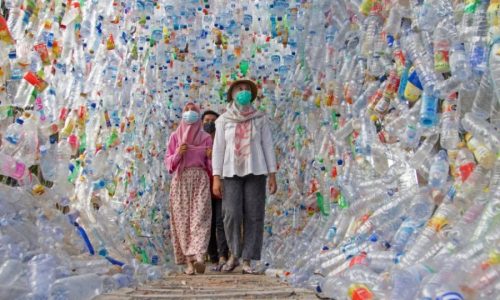The Public Works and Public Housing (PUPR) Ministry is currently constructing the Sepaku ring road as the main access road to Nusantara, Indonesia’s new capital, in East Kalimantan. The average physical progress has now reached 77%.
Public Works Minister Basuki Hadimuljono said that development of Nusantara has begun, including the road construction project. The toll road construction will follow after the completion of basic infrastructure.
“After mapping the land, the government will start the construction of basic infrastructure such as toll roads and national roads, which are the main access to Nusantara,” he said in a written statement on August 24, 2022.
The Sepaku ring road project is funded by the state through three stages totaling IDR103.772 billion. According to Junaidi, Head of East Kalimantan National Road Implementation Center (BBPJN), the total length of the road funded by the State Budget was approximately 2.91 kilometers.
President Joko “Jokowi” Widodo vowed that the new capital project’s development would continue, with only 20% of the total funding would came from the state budget, leaving a lion’s share to other parties. “The continuity of the [capital project] must be ensured. It is not a city for civil servants only, but also a place for innovators and entrepreneurs,” he said.
People’s Consultative Assembly (MPR) Speaker Bambang Soesatyo also threw his support behind the megaproject for the new capital.
“[We need] a development path that guarantees the continuity [of the project] without relying on a five-year electoral cycle. That includes [the capital project], which should not be neglected even if the national leadership changes,” he said.
The relocation of Indonesian capital from metropolis Jakarta to Nusantara raises new hopes for both the ruling elites and Jakartans as the most densely populated city in Java Island. The relocation will help eliminate Jakarta’s severe congestion, unsustainable land use and overpopulation, as well as the consequences of these problems. For decades, these issues have plagued not only Jakarta but also Java.
When we discussed these issues with our local respondents in both informal and formal settings, we were met with skepticism. This came not only from local academics, activists, and citizens but also from East Kalimantan regency and provincial bureaucrats.








